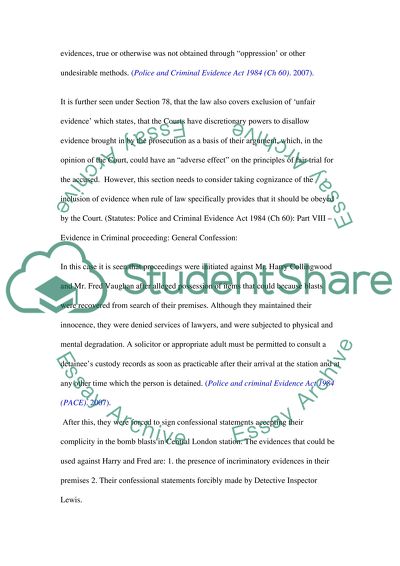Cite this document
(“Evidence Law Essay Example | Topics and Well Written Essays - 1250 words”, n.d.)
Retrieved from https://studentshare.org/miscellaneous/1529172-evidence-law
Retrieved from https://studentshare.org/miscellaneous/1529172-evidence-law
(Evidence Law Essay Example | Topics and Well Written Essays - 1250 Words)
https://studentshare.org/miscellaneous/1529172-evidence-law.
https://studentshare.org/miscellaneous/1529172-evidence-law.
“Evidence Law Essay Example | Topics and Well Written Essays - 1250 Words”, n.d. https://studentshare.org/miscellaneous/1529172-evidence-law.


